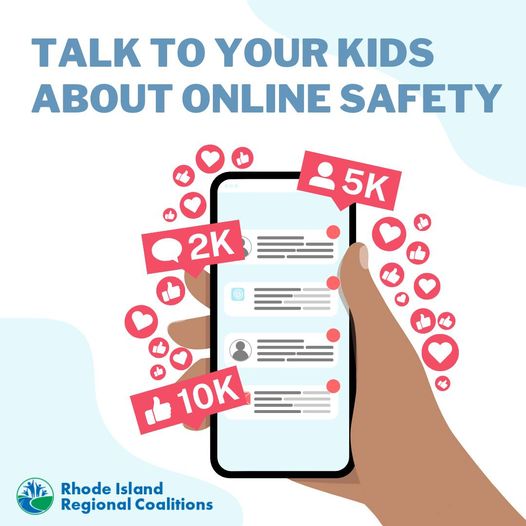Social media driving national youth mental health crisis
JESSICA CORBETT for Common Dreams
As U.S. Surgeon General Dr. Vivek Murthy issued an advisory calling attention to "the growing concerns about the effects of social media on youth mental health," the White House unveiled federal actions to better protect children online.
"The most common question parents ask
me is, 'Is social media safe for my kids?'," Murthy said in a
statement. "The answer is that we don't have enough evidence to say it's
safe, and in fact, there is growing evidence that social media use is
associated with harm to young people's mental health."
"Children are exposed to harmful content on social media, ranging from violent and sexual content to bullying and harassment. And for too many children, social media use is compromising their sleep and valuable in-person time with family and friends," he continued.
"We are in the middle of a national youth mental health crisis,
and I am concerned that social media is an important driver of that crisis—one
that we must urgently address."
Up to 95% of youth ages 13-17 use social media, and over a third do so "almost constantly," Murthy's advisory notes. While most platforms require users to be at least 13 years old, nearly 40% of children ages 8-12 also report using social media.
"More research is needed to fully
understand the impact of social media; however, the current body of evidence
indicates that while social media may have benefits for some children and
adolescents, there are ample indicators that social media can also have a
profound risk of harm to the mental health and well-being of children and
adolescents," the advisory warns.
"We must acknowledge the growing body
of research about potential harms, increase our collective understanding of the
risks associated with social media use, and urgently take action to create safe
and healthy digital environments that minimize harm and safeguard children's
and adolescents' mental health and well-being during critical stages of
development," the document adds.
Along with detailing the benefits and
pitfalls of young people using social media as well as the existing scientific
research and which "critical questions remain unanswered," the
advisory offers recommendations for policymakers, technology companies,
researchers, parents and caregivers, and youth.
As The New York Times reported:
The advisory joins a growing number of
calls for action around adolescents and social media, as experts probe what
role it may play in the ongoing teen mental health crisis.
Earlier this month, the American Psychological Association
issued its first-ever social media guidance, recommending that
parents closely monitor teens' usage and that tech companies reconsider features
like endless scrolling and the "like" button.
The American Psychological Association was
among top medical organizations that applauded Murthy's release, with Arthur
Evans Jr., the group's CEO and executive vice president, saying that
"we support the advisory's recommendations and pledge to work with the
surgeon general's office to help build the healthy digital environment that our
kids need and deserve."
The advisory was also welcomed by leaders
at the American Academy of Family Physicians, American Academy of Pediatrics,
American Medical Association, American Psychiatric Association, American Public
Health Association, and National Parent Teacher Association.
"Social media use by young people is
pervasive," said Susan Polan associate executive director of public
affairs and advocacy at the American Public Health Association. "It can
help them, and all of us, live more connected lives—if, and only if, the
appropriate oversight, regulation, and guardrails are applied."
"Now is the moment for policymakers,
companies, and experts to come together and ensure social media is set up
safety-first, to help young users grow and thrive," Polan added. "The
surgeon general's advisory about the effects of social media on youth mental
health issued today lays out a roadmap for us to do so, and it's critical that
we undertake this collective effort with care and urgency to help today's
youth."
The White House announced actions
at the departments of Commerce, Education, Health and Human Services, Homeland
Security, and Justice "build upon" Murthy's advisory, including the
creation of a task force as well as new regulations and resources.
President Joe Biden "has made tackling
the mental health crisis a top priority, and he continues to call on Congress
to pass legislation that would strengthen protections for children's privacy,
health, and safety online," the White House said, noting that it is Mental
Health Awareness Month.
"We applaud President Biden for
today's executive actions and his continued commitment to creating a safer,
less exploitative digital media environment for young people," said Josh
Golin, executive director of the advocacy group Fairplay. "We are
particularly excited by the plans to help schools use technology in ways that
support students' learning and mental health."
"We urge Congress to follow the
president's lead in putting the well-being of children ahead of Big Tech's
profits by passing the Kids Online Safety Act and COPPA 2.0," Golin added,
referring to bills also called KOSA and the Children and Teens' Online Privacy
Protection Act.
Dozens of rights groups have expressed free
speech and privacy concerns about KOSA along with three
other bills backed by child safety advocates: the Cooper Davis Act,
Eliminating Abusive and Rampant Neglect of Interactive Technologies (EARN IT) Act, and
Strengthening Transparency and Obligation to Protect Children Suffering from
Abuse and Mistreatment (STOP CSAM) Act.
.webp)
